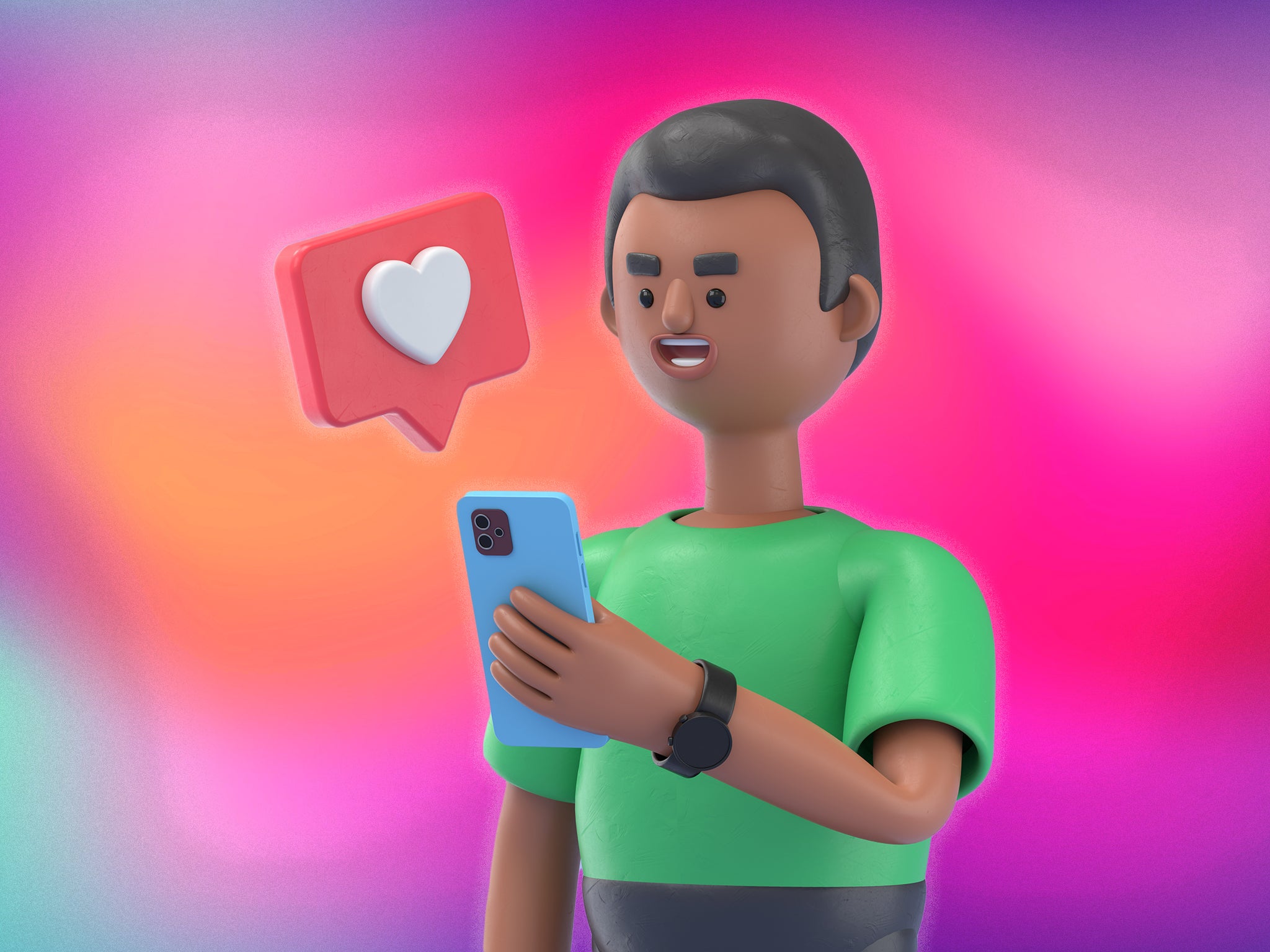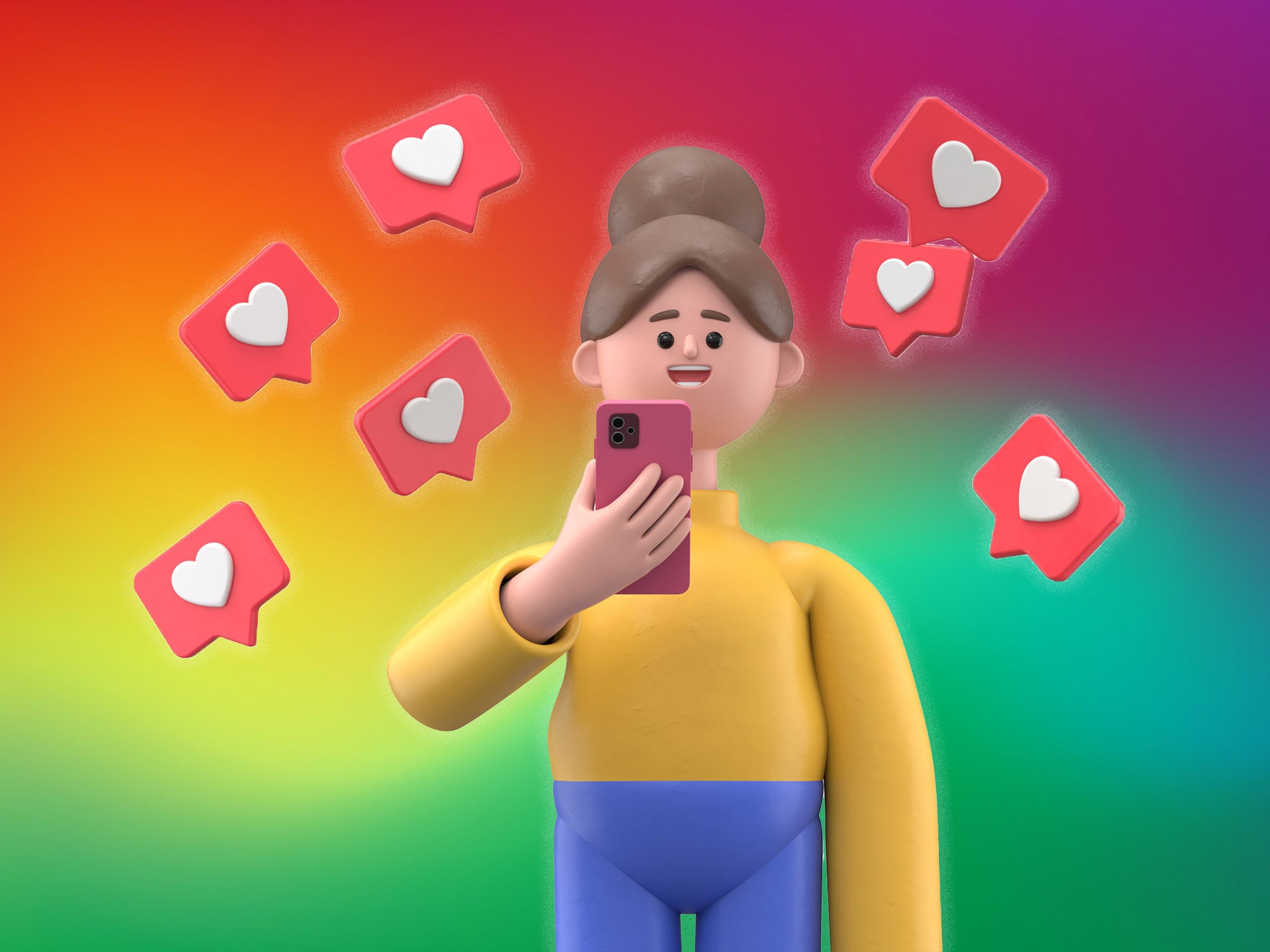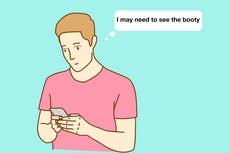Dating apps may be unpopular, but I can’t help but love them
Current online discourse tells us that we have reached peak dating app fatigue, but Oliver Keens is here to valiantly defend them – with caveats, of course


I woke up on Valentine’s Day this year to a message on a dating app that was so disgustingly profane that it was like waking up next to The Thick of It’s Malcolm Tucker. Despite this, I really, really like dating apps. This is arguably a deeply unfashionable view, more so than ever. So far this year, there has been a spate of articles expressing a deeper sense of malaise with “the apps” than normal. I’m not here to counter those, or disagree with them, but I’m also convinced that apps aren’t going anywhere soon. Optimistically, I think they can still be a good thing in society. I’m also old enough to remember speed-dating and personal ads – trust me, if you think there was a halcyon age of pre-internet romance we can return to, you’re mistaken. Actually, that reminds me: how old am I again?
I joined my first app in 2020, aged 40, after a long-term relationship ended. Because I was naive, plus insecure, plus a total moron, I lied about my age when I signed up, and claimed to be – please get ready to cackle loudly – “39”. You’ll be glad to know, by the way, that someone I subsequently dated – to whom I came clean – totally kicked my arse about it, with the panache and élan of a truly world-class arse-kicker.
I like being honest about this initial dishonesty because it’s exemplary of how apps have shown me the value of being as open as possible. There is truly no point in playing yourself or other people, and oddly I’ve found that nothing makes this more stark than talking to complete strangers about your desires. People complain about the sheer scale and volume of encounters that apps offer, but I honestly think that’s their beauty: you have the rare chance to be completely and unglamorously honest and still find a match. It’s the opposite of that familiar and outdated romcom trope where a person is besotted with that one person and pretends to share their interests just to get a date. By contrast, apps only work when you take the time to assess what you really want and set your stall out accordingly.
I could probably feign a superior perspective on dating, because I’m a pansexual person who dates men, women or non-binary people. But that would honestly be bogus. I do, however, feel qualified to say that mainstream art and culture is laughably bad at reflecting one of the biggest social revolutions of our era. Sure, I understand it’s hard to make great drama out of Person A (sat on a bus) typing a message to Person B (sat on the loo), but aside from worrisome true-crimers like The Tinder Swindler, online dating is mostly only portrayed in the midst of dramas about psychopaths and serial killers. Recent examples include Netflix’s tech murder mystery The One – about dating via DNA matching – or last year’s Disney+ film Fresh, about a cannibal butcher.
I think this has real-world consequences. There’s still a very real snobbishness about people who get together via an app. The absence of a traditionally “romantic” story around two people meeting means I’ve seen so many couples disclose their online origin with almost a sense of shame. Hearing one half of a loving couple issue the apologetic “Yeah, we met on an app” makes me want to die inside, because – screw the rest of the world – any coupling that has good energy is as valid as any other.
It’s also a shame because I think popular culture is missing out on a profound sexual shift happening at this time – specifically to men. Back in the era of Seventies disco, pop culture loved a man who could dance. Nothing conveyed raw, knowing sexual prowess like a Travolta-esque figure. Fast-forward to now, and I think the apps have ushered in a new era: one in which men can write.
I vividly remember meeting a woman years ago who’d started dating a rather nerdy, unassuming copy-editor who would make her giddy to the point of passing out every time he sent her an astonishingly well-crafted bon mot of sheer filth. Which, the night I met her, seemed to be every six minutes. Every time her phone went off, she would rock violently, blush, then laugh like a drain. I bowed down to his way with words, and then remembered him when I hit the apps, because they’re truly a place where words count. Now more than ever, and in heterosexuality especially, I think the pen is mightier than the penis. The ability to use words in written text has arguably never been more needed as a life skill. Alas, we can’t all be professional copy-editors, so how are men learning how to write on dating apps?
Again, there’s a cultural void the size of a lunar crater here. There’s a weight of examples of men writing hilariously badly, for instance when they act like a “softboi” – the strange phenomenon that occurs when sensitive-seeming men on apps claim not to be like “other boys”, oozing superiority the way a slug oozes gross, slimy mucus. There are prolific social media accounts that showcase an endless stream of this creepy form of chat, but to be fair, admirable examples of male flirtatious behaviour are pretty hard to find. I’m not suggesting we need a rosette for doing well, or that someone produces a cut’n’paste series of hot epithets – that would be like flirting online with an AI bot (which thanks to an app called CupidBot is unbelievably a thing now). All I can suggest is that, like with most things, talking about what’s good is seldom a bad idea.

Although I date across genders, I have never dated a straight man. While gay- or lesbian-focused apps like Grindr or Her have their own issues, inescapably the roots of so much discontent with the apps lies with the s***ty behaviour of men towards women. And while I genuinely think it would benefit society for men to understand how to write and communicate their desire better, I actually think it should be more or less mandatory for men to be made aware of the grimly common tropes of abuse and harm that occur against women on apps.
Depravity happens on an almost endemic level, but almost never impacts back on men. The stories are always the same. I don’t know any woman who hasn’t felt dehumanised by the horrific bluntness of men’s online dialogue. I don’t know any women who haven’t felt threatened in the course of chatting. I don’t know any women who haven’t woken up to a series of messages from a guy that starts with “Oh hey there” and then somehow spirals into abuse, graphic imagery and unsolicited d*** pics, premised on nothing more than the guy’s unhinged, horny desperation.
Apps are definitely not for everyone. I don’t begrudge anyone wanting to get off them. But I’m also pragmatic enough to appreciate that – despite their depiction in popular culture – they’re still so widely used that it’s hard to imagine them vanishing soon. Like many aspects of the modern world, I think the problem isn’t with the technology but with the mentality of the people who use it – which I think, optimistically, we can start to change if we bring apps out of the shadows more.
Apps aren’t going to make problematic men good, but I really think they can make good men better. If we learn to be honest about both the huge joys and the colossal pains of the app world, normalise talking about them in public (ie no more eye-rolling from married folks, please), and celebrate when people find each other on apps as well, I think there’s every chance that many more people will wake up next year to an actually cute Valentine’s Day message.
Join our commenting forum
Join thought-provoking conversations, follow other Independent readers and see their replies
Comments


Bookmark popover
Removed from bookmarks